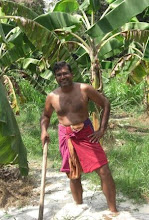The United States has seen an incredible growth in talk radio and its influence on public opinion over the past ten years. The Houses of Congress and the President keeps tabs on views and opinions and the polls on the different topics covered therein. This affects how some issues are debated and voted on by the elected members of congress. In that sense public opinion affects the laws being enacted or voted down. We may disagree with the outcome, but this is grass roots democracy at work.
It is common that extreme views and extreme questions are put forward in talk radio, as that encourages heated debate with people taking strong positions in opposing camps. Talk radio influenced the Senate resulting in their inability to pass comprehensive Immigration reform because of overwhelming public opinion against it. Talk radio resurrected the fear factor and prejudice which in many societies is just under the surface, even in the US.
We in Sri Lanka can learn from this exercise, as we should employ talk radio for people to express their opinions on the ethnic conflict, much of which can be incendiary to the opposing side. However this is better, than pent up anger, resulting in violence against innocent civilians.
The public should be given a chance to vent their anger against laws and politicians, in the hope that it can lead to some good. Then people can feel that their voice now muzzled till the next election is heard, and politicians can be brought in to answer questions and lead to a representative form of democracy.
The Sinhala radio has a well developed talk radio system of a very harmless nature, that can be directed towards a more political debate. With the gagging of journalists and freedom of expression in recent times, no radio station wants to risk being banned. This is an area where both responsible journalism and government can agree on terms of reference to allow the feelings of the man in street to be aired.
Friday, June 29, 2007
Subscribe to:
Post Comments (Atom)

No comments:
Post a Comment